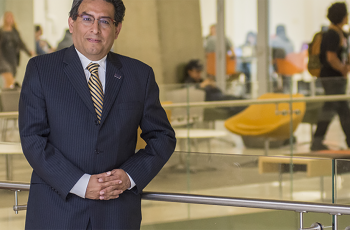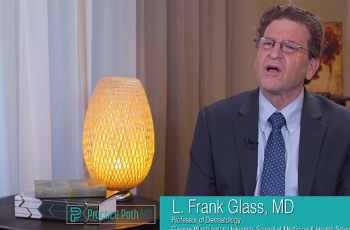Research News
Adam Friedman, MD, is the senior author of a study on the efficacy of nanoparticles in therapies for triple-negative breast cancer.
WASHINGTON (Sept. 26, 2018) - Rong Li, PhD, will serve as chair of the Department of Biochemistry and Molecular Medicine at the George Washington University (GW) School of Medicine and Health Sciences.
Dr. Adam Friedman joins breast cancer survivor Mariam Said to discuss side effects of cancer treatment and how the Supportive Oncodermatology Clinic at the GW Cancer Center is giving patients hope and resources for relief.
Norman Lee, PhD, is investigating the mechanism behind dysregulation splicing factor expression.
Researchers from the George Washington University (GW) Cancer Center recently participated in the American Society of Clinical Oncology (ASCO) Annual Meeting held June 1-5, 2018 in Chicago.
Research published in Cancer Cell by George Washington University (GW) Cancer Center researcher Alexandros Tzatsos, MD, PhD, found an important connection between the KDM6A gene and the most aggressive form of pancreatic cancer.
Rohan Fernandes, PhD, assistant professor of medicine at the George Washington University School of Medicine and Health Sciences, received more than $700,000 from the Alex’s Lemonade Stand Foundation to research treatment for neuroblastoma, a childhood cancer that forms in certain types of nerve…
A team of researchers at GW Cancer Center found that T-cells lacking in the HDAC11 enzyme performed better in attacking cancer tumor cells. This research highlights the importance of treating HDAC11 as an immunotherapeutic target.
Norman Lee, PhD, professor of pharmacology and physiology, published research in Nature Communications finding that a form of genetic variation, called differential RNA splicing, may have a role in tumor aggressiveness and drug resistance in African American men with prostate cancer.
When chronic, unresponsive eruptions don't respond to standard treatments, think cutaneous T-cell lymphoma, says L. Frank Glass, MD in an interview with Adam Friedman, MD.



